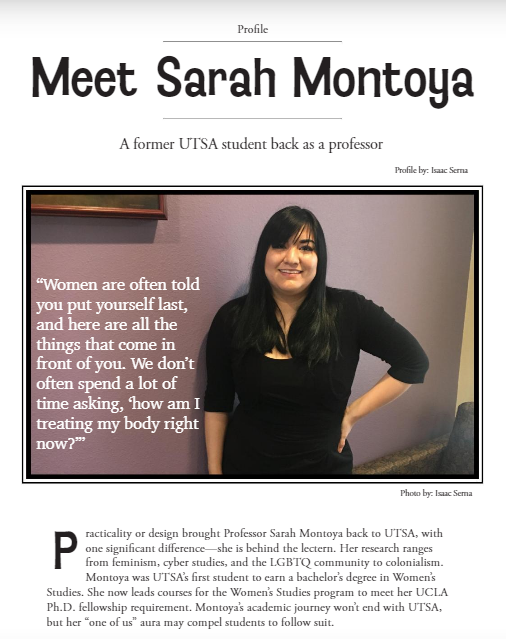Teaching
My utilization of a feminist pedagogical praxis signals a commitment to understanding the intersections of systemic oppressions and working towards a just future. As an educator, this means providing students a rich socio-historical context so they may critically evaluate how the actions (or inactions) of individuals and communities function as responses to power. The classroom environment I create encourages students to connect the materials to their lived experiences. This both enriches their understanding of the reading materials and affirms the knowledge they bring into the classroom. These projects work in-tandem with one another. By examining the material histories which have produced our current context, students situate themselves as social actors within a larger historical trajectory whose lives are the result of intertwining of histories and forces. I am committed to providing a learning environment that is engaging, rigorous, and empowers students to continue their thinking outside the classroom.
Course Design
In introductory courses and survey courses, I offer lectures which outline historical contexts and intellectual genealogies. These interactive lectures integrate visual media whenever possible and are interspersed with discussion questions. The remainder of the week is dedicated to classroom discussion that analyzes the major themes and key concepts in the course readings. Courses are designed to ameliorate the cost of reading materials as I provide all materials online, excerpt materials myself, and work with our librarian to ensure that lengthier material is available to students while also complying with copyright law. Slides are provided to attend to both accessibility and ensure student success. Clear rubrics, guides, and writing samples are provided to students whenever possible. Students produce drafts from midterm to final; this ensures students receive ample feedback before major assignments and understand the importance of revision and writing-as-a-process. This approach affords a more holistic assessment as I evaluate the growth between drafts rather than relying on rote memorization or timed exams which place undue stress on students.
DH in the Classroom
As a regular creator and contributor to multiple Digital Humanities projects, I incorporate technology in the classroom while teaching critical digital literacy. For instance, I often utilize content on social media to discuss how representations and information circulate in popular discourse. I employ forms of data visualization to help students “see” the links between bodies of literature or to comprehend real-world implications. My task is to supply the analytic framework for students to position themselves in a global economy and to understand how they do/ do not benefit from global structures of inequity. Digital technologies provide a fruitful opportunity to make these connections.
Course Descriptions
GS 185: "Cyberfeminisms 2.0: Feminist Technology Studies"
Excerpt: “Science and technology studies are fields of inquiry that require an urgent reckoning with the scientific racism and colonialism. As part of this reckoning, we will examine the development of Information and Communication Technologies (ICT) and addresses a variety of topics including early feminist theorizations of science and technology, the socio-political implications of search engines and data organization in a settler society, and the use of racialized extractive labor regimes in the production of computational devices and infrastructures. Though cyberspace was once hailed as a borderless, ephemeral space of infinite potential, we will discuss how these online spaces were and remain deeply shaped by settler state surveillance projects. This course utilizes Black, Indigenous, and WOC feminisms, Queer of Color critique, and Feminist Information and Technology Studies to interrogate the representation of computational histories, software and platforms, and their attendant material infrastructures in the U.S.”
LGBTQS 183: "Queering Settler Colonial Studies: Unsettling Sex, Gender, and Nation"
Excerpt: “This course asks students to understand how gender, sexuality, and the socio-medical construction of sex are intimately tied to the project of settler colonialism and statecraft in the US. The course considers how settler colonialism shaped/ continues to shape constructions of gender, sex, sexuality, and intimacy. We practice an attentiveness to how these constructions are tied to the conquest for land and territory and how scientific racism functions as a form of colonial violence. We interrogate the category of “the human” as we discuss settler colonial constructions of class, culture, and dis/ability as nation-building projects. We also examine the role of criminalization and the carceral state in forming the geographic and social “boundaries” of a settler society and how communities have mobilized against settler state violence. This approach allows us to draw connections between contemporary forms of criminalization in units which encompass questions about citizenship/ nationalism and immigration/borders as we move towards liberation via decolonial and abolitionist discourses.”
